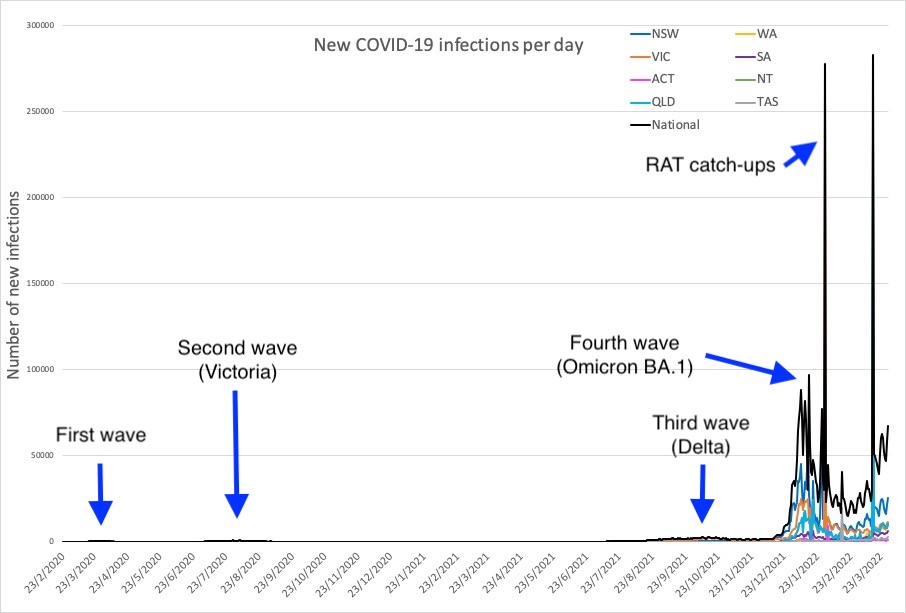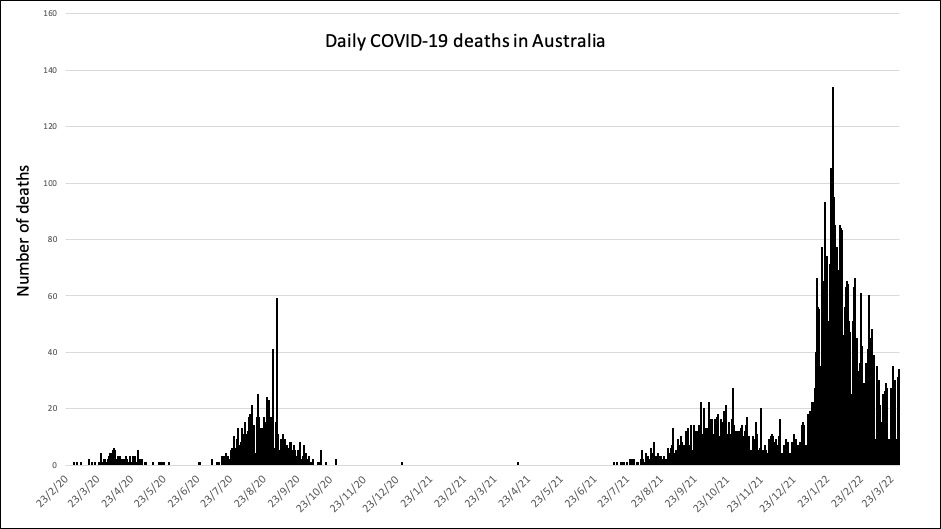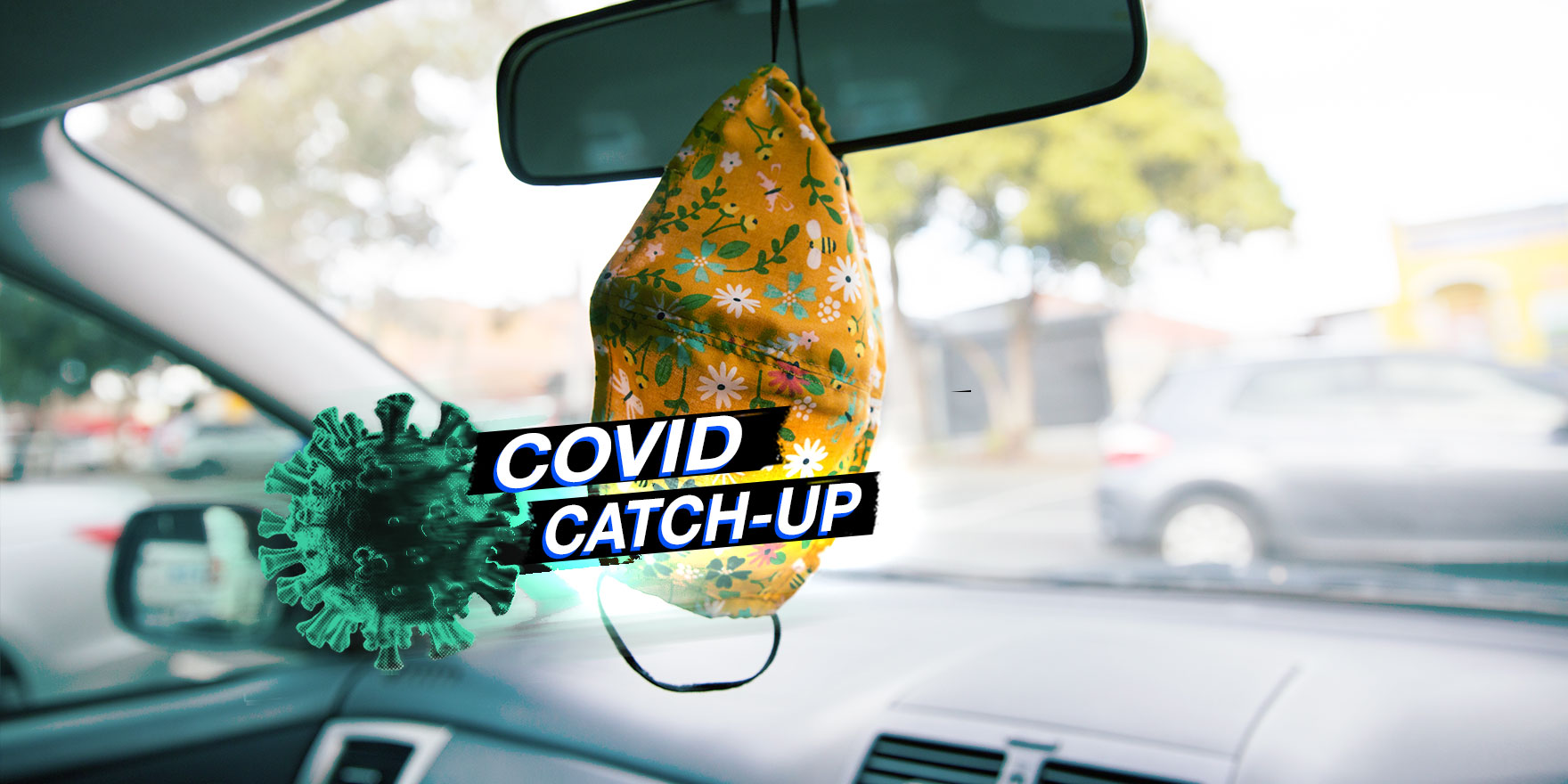And children are at far less risk of reinfection than adults.
Welcome to The Medical Republic’s Covid Catch-Up.
It’s the latest covid-19 news in one convenient post. Email bianca@biancanogrady.com with tips, comments or suggestions.
31 March
- Omicron BA.2 has twice the viral load of BA.1 in nasopharyngeal samples, study founds.
- Children have lower risk of reinfection than adults.
- Ivermectin sucks against covid, science says (again).
- No need to isolate or test within 12 weeks of previous covid infection in NSW.
- Risk of death from covid increases more steeply with age than does risk of severe disease.
- Global covid infection rates drop.
- The Covid Blog celebrates two years on the beat.
- Covid killed 173 Australians in the past week.
The Omicron BA.2 subvariant is associated with double the quantity of SARS-CoV-2 virus in the nasopharyngeal area, which could explain why it is now outcompeting its sibling subvariant BA.1.
A non-peer-reviewed paper published on MedRxiv reported the results of a study of nearly 175,000 clinical nasopharyngeal swab samples collected between January and March 2022 in Sweden, during which time the BA.2 subvariant took over from BA.1.
This found that the quantities of virus in swabs of BA.2 subvariant infections were 1.9 times higher than in swabs of BA.1 subvariant infections.
Children have a much lower risk of reinfection with covid than adults, and even if they do get reinfected, they’re at no greater risk of severe disease or death, a study has found.
Writing in the Lancet Child & Adolescent Health, researchers presented analysis of national surveillance data from the UK from January 2020 to July 2021 (before Omicron), which included 688?418 primary infections and 2343 reinfections in children aged 16 and under.
The rate of reinfection was more than three times higher in adults than in children, and hospital admission rates among children with reinfections were similar between the first and second infection. There were also no deaths associated with reinfection in children, and only four intensive care admissions.
If you need to hear it again: ivermectin doesn’t work against covid, says a double-blind, randomised, placebo-controlled trial in 3515 people with at least one risk factor for disease progression, published in the New England Journal of Medicine.
People in NSW who have had covid now don’t need to isolate or test again after exposure for 12 weeks after their infection.
The new advice from NSW Health is that the risk of reinfection within 12 weeks of previous infection is so low that even if you are a close contact, if you have experienced covid within the previous 12 weeks you do not need to isolate or get tested.
The change brings NSW into line with the policy in Queensland and South Australia, while in Victoria the no-isolation period after infection is eight weeks.
The risk of death from covid increases more steeply with age than does the risk of severe or critical disease, a meta-analysis of data from 15 locations around the world has found.
The analysis of age-specific rates of severe disease, critical disease and death from covid used data from seroprevalence studies to estimate the risk of these outcomes, according to the paper published in BMC Infectious Diseases.
This revealed that people aged 20-25 years were on average 779 times less likely to die from covid than people aged 70-75 years, 188 times less likely to get critical disease and 38 times less likely to get severe disease.
“We find that while young and middle-aged individuals had low rates of fatal infection, they had much higher rates of severe and critical infection, emphasising the need to consider these disease outcomes in these populations,” the authors wrote.
After an ominous surge over the past few weeks, global covid infection rates have dropped again, according to the latest WHO data.
There was a 14% decline in new infections in the past week compared to the previous week, with the biggest drops seen in the Middle East and Africa.
It’s now two years and four (and a half?) waves since The Medical Republic launched this covid blog.
Here’s what the infection rates landscape over that time looks like:

Covid has killed 173 Australians over the past week and 3717 in total for the first three months of 2022. That’s more than the number of Australians who died from covid in 2020 and 2021 combined.



